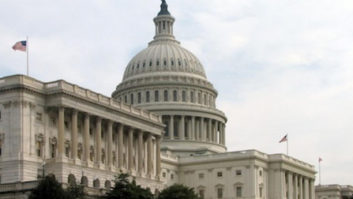The process for organizing licensing rights is under review.
The Department of Justice announced it plans to review its consent decrees with two of the nation’s largest performing rights groups.
It was back in 1941 that the DOJ’s Antitrust Division first entered into consent decrees with ASCAP and BMI — the American Society of Composers, Authors and Publishers and Broadcast Music Inc. — whose object is to pool copyrights held by composers, songwriters and publishers of musical works and license those to performance outlets like radio and TV stations and streaming entities.
Changes to the decrees were most recently made with ASCAP in 2001 and BMI in 1994. Those decrees require ASCAP and BMI to issue licenses to music users and in those cases where parties are unable to agree on a price for a license, the decrees provide for a rate court proceeding in front of a U.S. district judge.
According to the assistant attorney general for the Antitrust Division, the ASCAP and BMI decrees have effectively regulated how musicians are compensated for the public performance of their musical creations.
“There have been many changes in the music industry during this time, and the needs of music creators and music users have continued to evolve,” said Makan Delrahim, assistant attorney general. “It is important for the division to reassess periodically whether these decrees continue to serve the American consumer and whether they should be changed to achieve greater efficiency and enhance competition in light of innovations in the industry.”
One interested party that welcomes the opportunity to participate in the department’s review of the consent decrees is the National Association of Broadcasters. “For decades, these BMI and ASCAP antitrust consent decrees have ensured a fair and efficient licensing of musical works to local radio and TV stations,” said NAB President and CEO Gordon Smith in a statement. “The decrees benefit songwriters, broadcasters, music licensees and music listeners. Absent broader legislative reforms, their preservation is essential to a fully functional music marketplace.”
The Antitrust Division is asking for public comment on how the ASCAP and BMI decrees should be modified or terminated, or if they should be retained unchanged. In particular, the department is asking whether the consent decrees continue to serve important competitive purposes, if the department should consider termination of the decrees to serve the public interest or if the differences between the two consent decrees somehow adversely affects competition.
Individuals should submit comments via email to [email protected]. The public comment period runs through July 10.
[Subscribe to our newsletter and get it delivered right to your inbox.]










